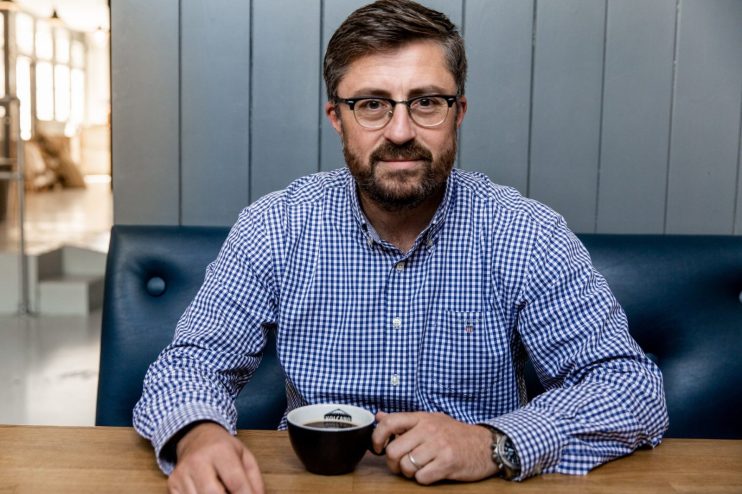Corona Impact Series: How a Brixton coffee roaster brew up plans for a radical transformation during lockdown

In this series, City A.M. looks at the financial and economic impact of the ongoing pandemic on a range of small and medium-sized businesses across London. Today: Volcano Coffee Works entered the initial lockdown as a wholesale business and, through necessity, is emerging as something very different.
First lockdown
Volcano Coffee Works is an independent specialty coffee roaster based in Brixton with a staff of 34 people. The business initially saw revenues drop by as much as 75 per cent during the first lockdown and they had to make some difficult decisions, but have ultimately managed to recover to around 70 per cent of its pre-Covid levels albeit with a very different mix of business.
Lockdown restrictions meant that they were no longer able to rely on wholesale hospitality trade, which had traditionally constituted around 90 per cent of the business, Tom Delaney, the managing director of Volcano Coffee Works, shared with City A.M.
“We took advantage of the government funded schemes, at one point 70 per cent of our staff were on furlough, as opposed to making people redundant,” he said.
“As a speciality coffee roastery, Volcano Coffee Works has direct relationships with its farmers at origin. Because of this, we feel as though we have a significant responsibility to the farming communities and the people we support when the business buys their coffee,” Delaney continued.
The company also believes it has a similar duty to the many (often small) hospitality business that serve the finished roasted product here in the UK. Farmers are dependent on the price premiums companies like Volcano Coffee Works pay to support their livelihoods, as it provides an alternative to the more exploitative commodity coffee markets.
This gave the business the real motivation to do all it could to ensure that they not only survived but learned to thrive under the recent challenging market conditions, Delaney explained.
“In times of extreme pressure, human beings revert to type, and we relied heavily on our core values as a business, we fundamentally believe that everyone deserves a fair shot which meant that we needed to do all we could for everyone in our supply chain,” he said.
“It is a terrible burden, taking the responsibility for others, but a great rallying call for action.”
Hospitality
Hospitality businesses, have been, and will continue to be, the backbone of the business – so it was important that Volcano Coffee Works was able to support them by being responsive with different variations of products and services, understanding of their financial position and sharing in-house expertise, such as finance and accountants, as services were they may be lacking.
They shifted the business into new channels to ensure they had a more sustainable mix of sales opportunities. As people are replicating their office and café experience at home, spending £2.2bn on home coffee making equipment since lockdown, around 63 per cent of consumers in the UK are now willing to pay more for coffees that they know will benefit the farmers.
Knowing this, Volcano Coffee Works invested to rapidly grow its e-com platform by around 800 per cent. They also invested in new hires to help them develop the retail and grocery offering.
Pop-up cafe in Brixton
Both e-com and retail are now thriving with listings in export markets. Furthermore, they created a pop-up cafe in their Brixton site and ensured their Parkhall cafe was Covid-safe, so it could continue to be the heart of the community in West Norwood, at a time when community spirit was very much needed.
Having a pause in the day to day allowed Volcano Coffee Works to spend time revaluating its core values.
“During lockdown, we took the time to become a carbon neutral business, kick off our application to become a B-Corp and improved our production to salsa levels, all of which were already in the pipeline for the future,” Delaney said.
“After the immediate action to ensure the survivability of the business, we turned our attention to the future. Ensuring we had an improved business primed for when we got back to normal, it was important to deal with short terms issues, but having a long term plan meant that we always had something to focus on,” he added.
While many challenges persist, Delaney feels confident about what the future might hold.
“We’ve obviously been dependent on our own suppliers for support and have relied heavily on software such as Xero for daily, or even more frequent updates on cash flow forecasts to ensure we’ve been able to make all of these decisions with confidence and clarity, even when the market provide very little by way of reassurance,” he concluded.